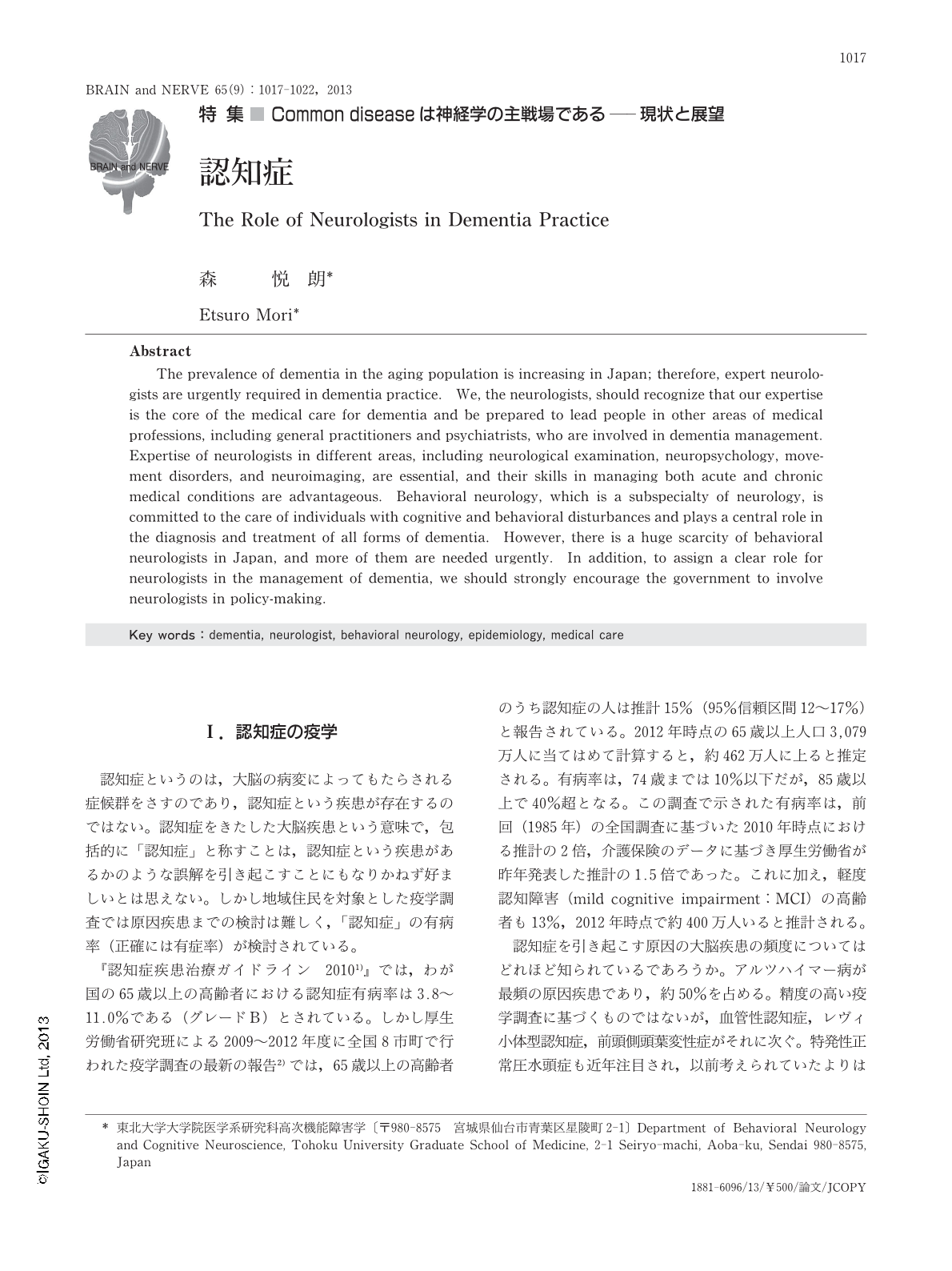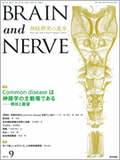Japanese
English
- 有料閲覧
- Abstract 文献概要
- 1ページ目 Look Inside
- 参考文献 Reference
Ⅰ.認知症の疫学
認知症というのは,大脳の病変によってもたらされる症候群をさすのであり,認知症という疾患が存在するのではない。認知症をきたした大脳疾患という意味で,包括的に「認知症」と称すことは,認知症という疾患があるかのような誤解を引き起こすことにもなりかねず好ましいとは思えない。しかし地域住民を対象とした疫学調査では原因疾患までの検討は難しく,「認知症」の有病率(正確には有症率)が検討されている。
『認知症疾患治療ガイドライン 20101)』では,わが国の65歳以上の高齢者における認知症有病率は3.8~11.0%である(グレードB)とされている。しかし厚生労働省研究班による2009~2012年度に全国8市町で行われた疫学調査の最新の報告2)では,65歳以上の高齢者のうち認知症の人は推計15%(95%信頼区間12~17%)と報告されている。2012年時点の65歳以上人口3,079万人に当てはめて計算すると,約462万人に上ると推定される。有病率は,74歳までは10%以下だが,85歳以上で40%超となる。この調査で示された有病率は,前回(1985年)の全国調査に基づいた2010年時点における推計の2倍,介護保険のデータに基づき厚生労働省が昨年発表した推計の1.5倍であった。これに加え,軽度認知障害(mild cognitive impairment:MCI)の高齢者も13%,2012年時点で約400万人いると推計される。
Abstract
The prevalence of dementia in the aging population is increasing in Japan; therefore, expert neurologists are urgently required in dementia practice. We, the neurologists, should recognize that our expertise is the core of the medical care for dementia and be prepared to lead people in other areas of medical professions, including general practitioners and psychiatrists, who are involved in dementia management. Expertise of neurologists in different areas, including neurological examination, neuropsychology, movement disorders, and neuroimaging, are essential, and their skills in managing both acute and chronic medical conditions are advantageous. Behavioral neurology, which is a subspecialty of neurology, is committed to the care of individuals with cognitive and behavioral disturbances and plays a central role in the diagnosis and treatment of all forms of dementia. However, there is a huge scarcity of behavioral neurologists in Japan, and more of them are needed urgently. In addition, to assign a clear role for neurologists in the management of dementia, we should strongly encourage the government to involve neurologists in policy-making.

Copyright © 2013, Igaku-Shoin Ltd. All rights reserved.


